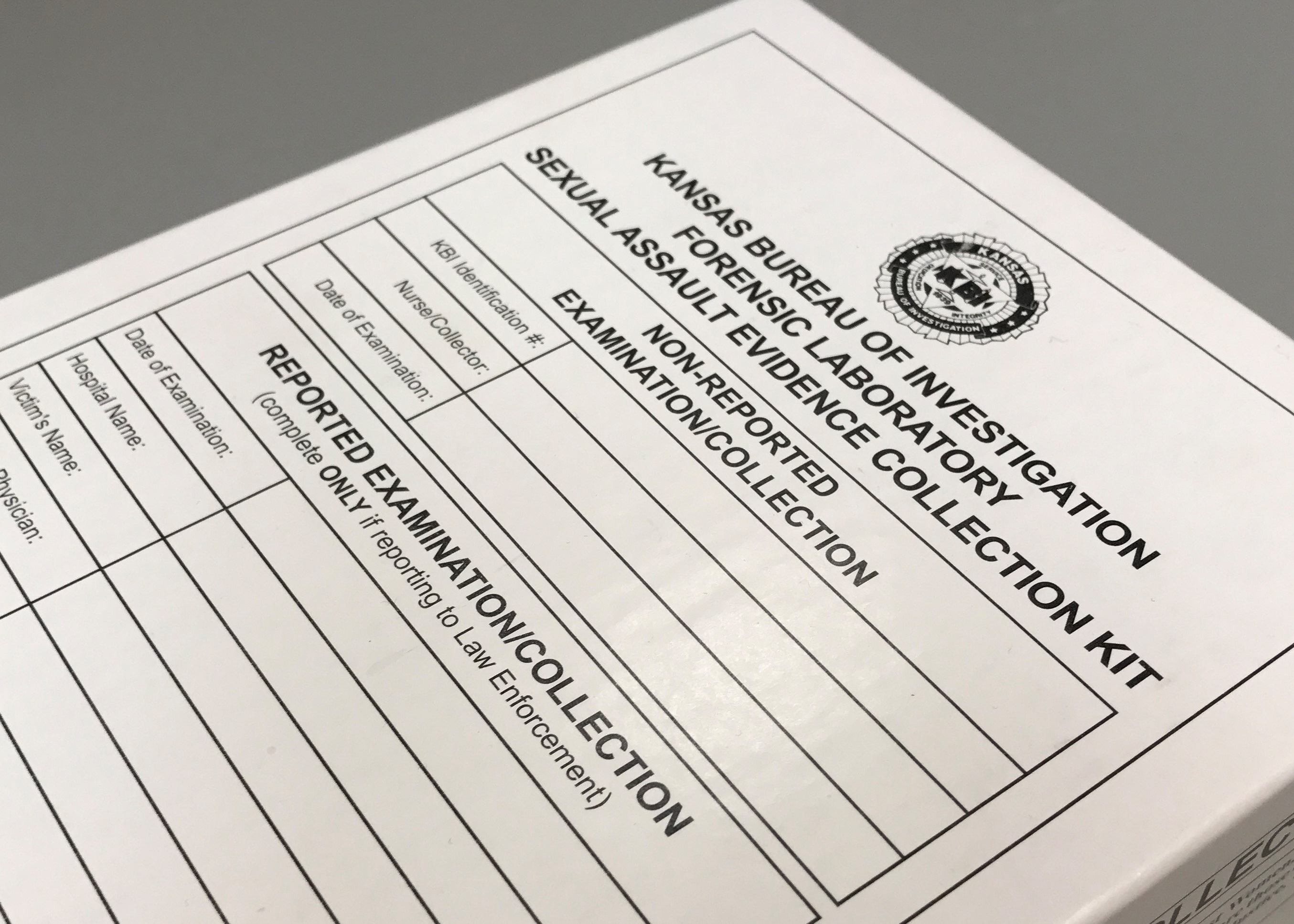When it comes to public safety, understanding the system of KBI registered offenders is crucial for every citizen. The Kansas Bureau of Investigation (KBI) plays a pivotal role in maintaining a registry that keeps communities informed and protected. This registry isn't just a database; it's a tool designed to empower individuals with knowledge that could save lives. So, let's get into it and break down what this system really means and why it matters.
Now, you might be wondering, "Why should I care about KBI registered offenders?" Well, here's the thing: being aware of who's around you, especially those with a history of serious offenses, can make all the difference. It's not about fear; it's about awareness. By understanding how this registry works, you're equipping yourself with valuable information that can guide your decisions and keep your loved ones safe.
Imagine living in a neighborhood where you know exactly who to watch out for. Sounds like a game-changer, right? That's what the KBI registered offenders list aims to provide. But there's so much more to it than just a list of names. There's a system, rules, and processes that govern how offenders are tracked, registered, and monitored. Let's dive deeper into this world and uncover the truths behind the KBI's efforts to protect us all.
Read also:Gabriel Landeskog The Hockey Star Who Inspires Fans Worldwide
What Exactly Are KBI Registered Offenders?
So, what does it mean to be a KBI registered offender? Simply put, these are individuals who have been convicted of certain crimes and are required by law to register with the Kansas Bureau of Investigation. But it's not just any crime that lands someone on this list. We're talking about serious offenses, particularly those involving sexual misconduct or violence.
The registry isn't just a random collection of names. It's a well-organized system that tracks offenders based on their risk level and the nature of their crimes. Think of it like a safety net that helps authorities keep an eye on people who might pose a threat to society. And let's not forget, this isn't just about punishment—it's about prevention.
How Does Someone End Up on the KBI Registry?
It's not like someone just wakes up one day and finds themselves on the KBI registered offenders list. There's a legal process involved. First, the person has to be convicted of a qualifying offense. Then, depending on the severity of the crime and the judge's ruling, they may be required to register. This isn't a one-time thing either; registration often involves regular updates and checks.
And here's the kicker: the requirements for registration can vary depending on the crime. Some offenders might need to register for a few years, while others could be on the list for life. It all depends on the circumstances of their case and the level of risk they pose to the community.
Why Is the KBI Registry Important?
Let's talk about why the KBI registered offenders list is such a big deal. For starters, it's a powerful tool for public safety. By making this information available, the KBI empowers citizens to make informed decisions about their surroundings. Whether it's choosing a new neighborhood or keeping an eye on who's around your kids, this registry provides valuable insights.
But it's not just about protecting individuals. The registry also helps law enforcement agencies monitor potential threats more effectively. It's like having an extra layer of security that keeps everyone safer. And let's not forget, it serves as a deterrent for would-be offenders, reminding them that their actions have long-term consequences.
Read also:Discover The Enchanting Beauty Of Ta Brunswick Ga A Hidden Gem In Georgia
Public Awareness and Its Role in Safety
Public awareness is key when it comes to the KBI registry. The more people know about how it works and what it entails, the better equipped they are to protect themselves and their communities. This isn't about spreading fear; it's about fostering a culture of vigilance and responsibility.
Think about it: if you know there's a registered offender living nearby, you're more likely to take precautions. You might be more cautious about leaving your kids unattended or keeping your doors locked. That's the power of knowledge, and the KBI registry is all about giving you that power.
Understanding the KBI's Role
Now, let's take a moment to appreciate the work the Kansas Bureau of Investigation does. The KBI isn't just maintaining a list; they're actively involved in tracking and monitoring registered offenders. This involves everything from verifying addresses to conducting regular checks on compliance.
And it's not an easy job. The KBI has to balance the need for public safety with the rights of offenders to reintegrate into society. It's a delicate dance that requires a lot of resources, expertise, and dedication. But the results speak for themselves. Communities are safer, and citizens are more informed thanks to the KBI's efforts.
How the KBI Manages the Registry
Managing the KBI registered offenders list is a complex process. It involves collaboration between various law enforcement agencies, regular updates to the database, and constant communication with local authorities. The KBI uses advanced technology to track offenders and ensure that all information is accurate and up-to-date.
And here's something you might not know: the KBI also provides resources for offenders who are trying to reintegrate into society. This includes counseling, job placement assistance, and other support services. It's all part of their mission to not only protect the public but also give offenders a chance to turn their lives around.
Common Misconceptions About KBI Registered Offenders
There are a lot of myths and misconceptions surrounding the KBI registered offenders list. Some people think it's only for sex offenders, while others believe it's a punishment rather than a preventative measure. Let's clear up some of these misconceptions and set the record straight.
First off, the registry isn't just for sex offenders. While many registrants have been convicted of sexual offenses, there are other crimes that can land someone on the list too. And as for it being a punishment, that's not entirely accurate either. The primary purpose of the registry is to protect the public, not to punish offenders.
Separating Fact from Fiction
Here's the deal: the KBI registered offenders list is a tool, not a weapon. It's designed to inform, not to shame. And while it's true that being on the list can have serious consequences for offenders, the ultimate goal is to prevent future crimes and keep communities safe.
So, the next time you hear someone spreading misinformation about the registry, you'll know the truth. It's not about fear or vengeance; it's about safety and accountability. And that's something we can all get behind.
The Impact on Communities
Let's talk about the real-world impact of the KBI registered offenders list. When people are aware of who's around them, they're more likely to take steps to protect themselves and their loved ones. This increased awareness can lead to safer neighborhoods, reduced crime rates, and a greater sense of security.
But it's not just about individuals. The registry also benefits communities as a whole. By providing law enforcement with valuable information, it helps them allocate resources more effectively and respond to potential threats more quickly. It's a win-win situation that benefits everyone involved.
Community Involvement and Support
Community involvement is crucial when it comes to the success of the KBI registry. When citizens are informed and engaged, they can play an active role in maintaining public safety. This might involve reporting suspicious activity, participating in neighborhood watch programs, or simply staying aware of their surroundings.
And let's not forget the importance of supporting offenders who are trying to reintegrate into society. By offering them a chance to rebuild their lives, we're not only helping them but also making our communities stronger and more resilient.
Challenges and Controversies
No system is perfect, and the KBI registered offenders list is no exception. There are challenges and controversies surrounding its implementation and effectiveness. Some people argue that the registry is too harsh, while others believe it doesn't go far enough.
There are also concerns about privacy and discrimination. Being on the list can have serious consequences for offenders, including difficulty finding housing and employment. And while the registry is designed to protect the public, there's always the risk of misuse or misunderstanding.
Addressing the Challenges
So, how do we address these challenges? It starts with education and transparency. The more people understand about the registry and its purpose, the better equipped they are to use it responsibly. And when it comes to supporting offenders, we need to strike a balance between accountability and rehabilitation.
It's also important to regularly review and update the system to ensure it's meeting the needs of both the public and offenders. This might involve revising registration requirements, improving support services, or enhancing the technology used to track offenders.
Future Developments and Innovations
As technology continues to evolve, so too does the KBI registered offenders list. Advances in data management, tracking, and communication are making the registry more effective and efficient than ever before. But what does the future hold for this crucial system?
One possibility is the integration of AI and machine learning to enhance tracking and analysis. This could lead to more accurate predictions of risk and better allocation of resources. Another potential development is increased collaboration between states and federal agencies to create a more comprehensive national registry.
Staying Ahead of the Curve
Keeping up with advancements in technology is key to ensuring the continued effectiveness of the KBI registry. By embracing new tools and techniques, the KBI can stay ahead of potential threats and provide even greater protection to the public. And as our understanding of crime and prevention continues to grow, so too will the registry's ability to adapt and evolve.
Conclusion
So, there you have it—a deep dive into the world of KBI registered offenders. From understanding what the registry is to exploring its impact on communities, we've covered a lot of ground. The KBI's efforts to maintain this system are vital for public safety, and by staying informed, we can all play a part in keeping our communities safe.
Now, it's your turn to take action. Share this article with your friends and family, leave a comment with your thoughts, or explore other resources to learn more about the KBI registry. Together, we can make a difference and ensure that everyone has the knowledge they need to stay safe.
Remember, awareness is power. And with the KBI registered offenders list, that power is in your hands. So, let's use it wisely and work together to create safer, more informed communities.
Table of Contents
- What Exactly Are KBI Registered Offenders?
- Why Is the KBI Registry Important?
- Understanding the KBI's Role
- Common Misconceptions About KBI Registered Offenders
- The Impact on Communities
- Challenges and Controversies
- Future Developments and Innovations
- How Does Someone End Up on the KBI Registry?
- Public Awareness and Its Role in Safety
- How the KBI Manages the Registry


